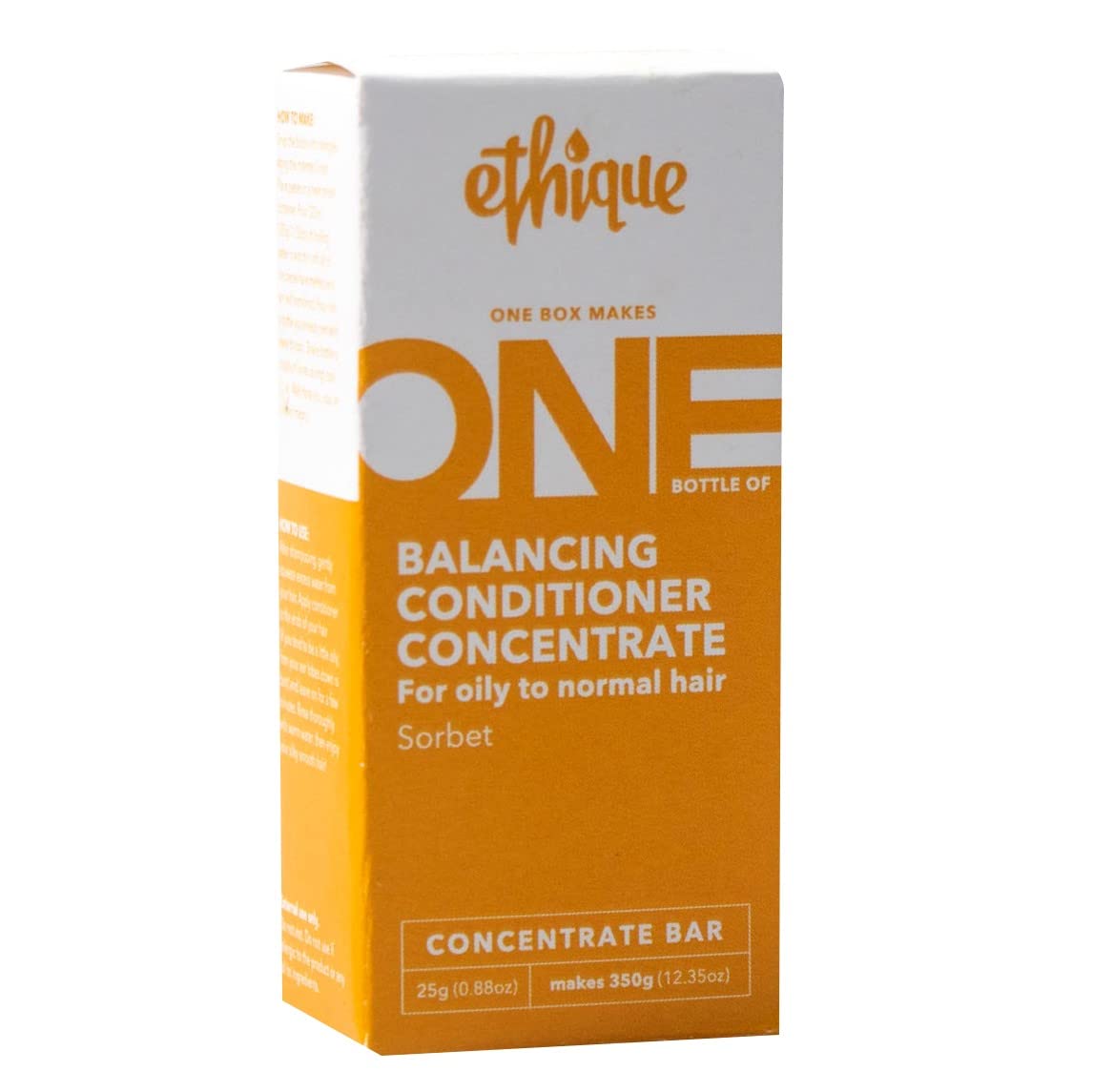We can't find the internet
Attempting to reconnect
Something went wrong!
Hang in there while we get back on track
When you buy through links on our site, we may earn an affiliate commission. Learn more
conditioner
By Rachel Geyer
Many popular conditioners have numerous negative impacts on both the environment and your health. We’ve found some alternatives that are better for you and your planet.
Conditioner
The biggest direct impact of conditioners on the environment is plastic packaging. Most conditioner bottles are made of High Density Polyethylene (HDPE). It can take up to 500 years for a bottle made of HDPE to completely break down on land. As the plastic decomposes, it breaks into even smaller pieces called microplastics. Microplastics can infiltrate our waterways, soil, and bodies and are incredibly hard to remove because of their size.
HDPE bottles are recyclable and marked with a #2. However, only 5% of plastic generated yearly in the U.S. gets recycled. The remaining 95% finds its way into landfills and waterways. To increase the probability that your plastic gets recycled, you can check what kinds of plastics your local recycling program accepts and rinse and dry plastic before putting it in your recycling bin.
Conditioners can also contain chemicals that can harm you, the environment, or both. Phthalates, polyethylene glycol (PEG), retinyl palmitate, and formaldehyde can be found in some conditioners and have serious health risks. Parabens are harmful to your health, particularly your endocrine system, and can kill coral. Sulfates have negative impacts on your hair, as well as the environment after they’re washed down the drain. Silicone is found in many cosmetic products and is a type of plastic polymer with similar drawbacks to HDPE.
One natural ingredient with a negative impact often found in conditioners is palm oil. Palm oil production has resulted in mass deforestation and human rights violations.
A potential indirect impact of conditioners on the environment is your showers. Longer showers use more water and energy, so cutting the length of your showers can have a positive impact!
What To Look For
Looking for a conditioner that is good for you and the planet doesn’t need to be difficult, despite everything listed above to avoid. Here’s what you should look for when buying your conditioner:
Plastic-free packaging can be the easiest to spot. Conditioner bars are the most popular and don’t require a plastic bottle. However, if you prefer sticking to liquid conditioners, there are still plastic-free options. Ethique sells a conditioner concentrate powder that you mix yourself at home. Plaine Products sells aluminum bottles of conditioner and covers the cost of shipping your used bottle back to them to reuse. Aluminum is incredibly easy to recycle and can be recycled an infinite amount of times.
Check the ingredient list for any of the potentially harmful ingredients explained above; this includes parabens, sulfates, silicone, phthalates, polyethylene glycol, retinyl palmitate, formaldehyde, and palm oil. Sulfates are often listed as Ammonium Lauryl Sulfate, Sodium Laureth Sulfate, and Sodium Lauryl Sulfate in conditioners.
Natural fragrances are also a good sign. Look for products that use and list types of essential oils rather than simply stating they use natural fragrances.
DIY
If you’d prefer to make your own conditioner, DIY recipes are available. We’ve found one that uses several easy-to-find ingredients. Links to purchase ingredients on Amazon are included, but all ingredients can be found at your local supermarket (Target, Walmart, etc.)
- 2 tbsp cocoa butter
- 2 tbsp coconut oil
- 1 tbsp jojoba oil
- 1 tsp aloe vera
- ~20 drops of essential oils of your choosing
Sources
- https://www.imperialdade.com/blog/plastic-recycling-codes-types-explanation
- https://pubs.acs.org/doi/pdf/10.1021/acssuschemeng.9b06635
- https://phys.org/news/2022-05-plastic-recycled.html
- https://www.genesiscareer.edu/8-ingredients-to-avoid-in-your-shampoo-and-conditioner/
- https://www.ewg.org/what-are-parabens
- https://icicare.co.uk/blogs/blog/why-are-sulfates-bad-for-your-hair-and-the-environment
- https://assets.vu.nl/d8b6f1f5-816c-005b-1dc1-e363dd7ce9a5/702e44d9-2b00-43c9-8c6c-efce1179d2ad/Plastic_ingredients_in_Cosmetics_07-2014_FINAL_tcm296-409859.pdf
- https://www.wwf.org.uk/updates/8-things-know-about-palm-oil
- https://www.epa.gov/sites/default/files/2017-02/documents/ws-ourwater-shower-better-learning-resource_0.pdf
- https://www.aluminum.org/Recycling
- https://www.ouroilyhouse.com/how-to-make-homemade-conditioner-simple-recipe-using-essential-oils/
Want more? Become an Intentful Consumer!
Get updates on new research and products. Upvote, comment, and add suggestions to help others.




